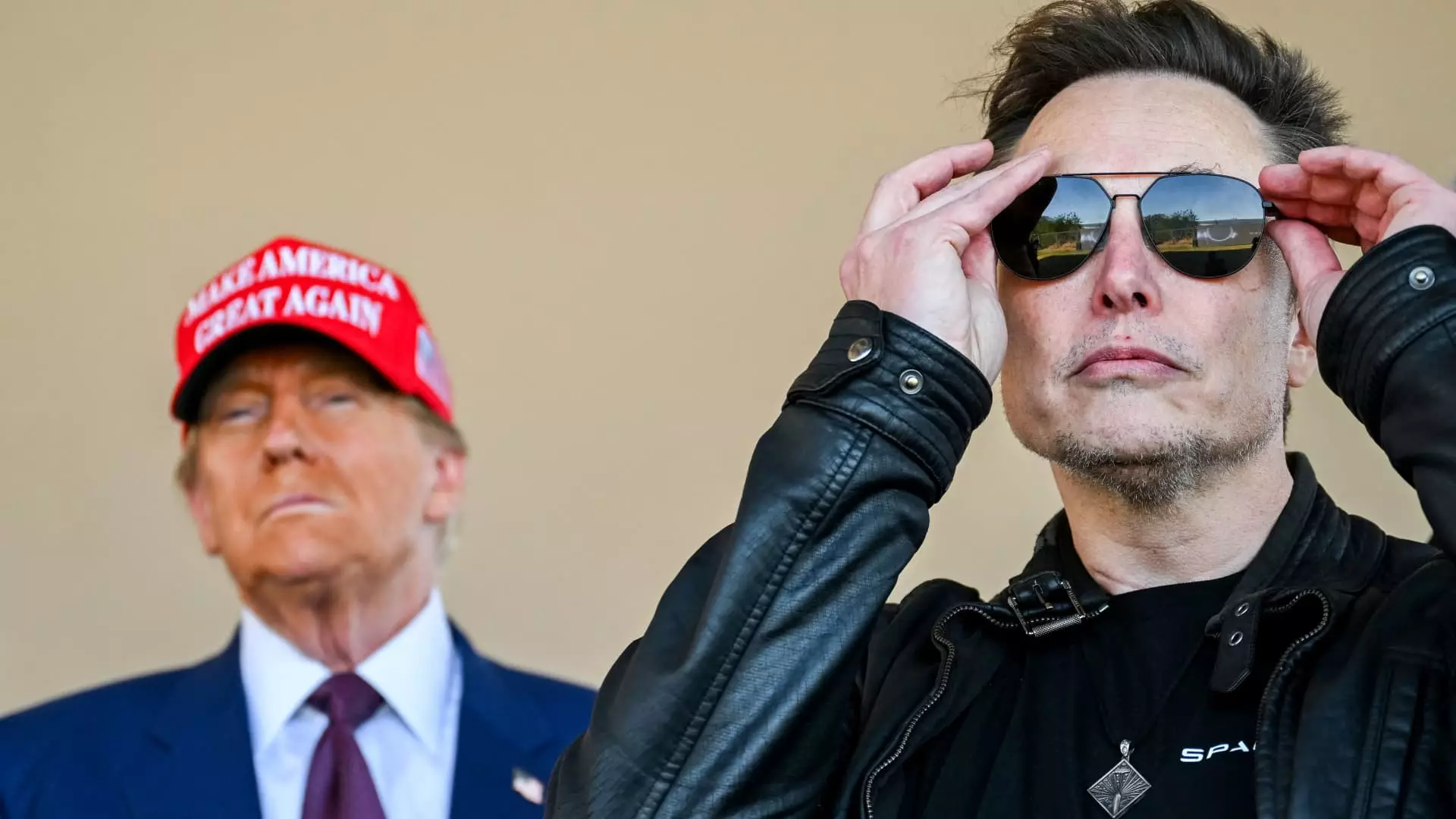The electric vehicle revolution has seen dramatic twists and turns over the past few decades, but few companies have managed to capture the public’s imagination—and investor’s wallets—like Tesla. Recently, Tesla’s shares soared to an unprecedented high, eclipsing previous records and reflecting renewed investor optimism partly fueled by political currents. This article delves into the factors influencing Tesla’s recent market behavior, illustrating how broader economic and political contexts intersect with investor sentiment to create significant shifts in stock performance.
On a Wednesday that could be likened to a financial victory lap, Tesla’s share prices surged, exceeding the heights previously reached back in 2021. The catalyst for this impressive rally was largely attributed to the recent election results that invigorated Wall Street’s confidence in the electric vehicle giant. The stock peaked at $415, just marginally surpassing its last record of $414.50, leading to speculation about further growth potential. This amounted to a staggering 66% increase in market value for Tesla over the course of the year, with a notable surge happening subsequent to Donald Trump’s election win.
The surge wasn’t just a reflection of Tesla’s business fundamentals; it also served as a bellwether for the shifting political tides in the United States. An influx of new investors, fueled by political affiliations and promises of pro-business policies under a Trump administration, has altered the landscape of enthusiasm surrounding the stock. Analysts noted that many are keen to hop on the bandwagon, believing that Tesla is poised for significant advancements under the forthcoming administration.
Musk’s Political Maneuverings and Corporate Ties
Elon Musk’s deepening involvement in political machinations has also shaped perceptions of Tesla’s growth trajectory. From pumping substantial funds into pro-Trump initiatives to actively assisting with voter registration efforts, Musk’s dual role as a billionaire entrepreneur and political operator has captured attention. His increasing close association with Trump’s administration could yield implications that extend far beyond immediate financial returns.
During a recent earnings call, Musk alluded to plans aimed at streamlining the federal approval process for autonomous vehicles—an area where he hopes to influence regulations traditionally dictated at the state level. By positioning himself at the nexus of corporate growth and federal policy, Musk seems intent on harnessing his clout to alter regulations that may benefit Tesla’s business model.
Wall Street analysts have reinforced this wave of positive sentiment. Notably, Goldman Sachs and Morgan Stanley have adjusted their price targets upward, showcasing an optimistic outlook regarding Tesla’s future. Goldman noted that the market is transitioning to a more optimistic view, particularly regarding Tesla’s artificial intelligence prospects. This forward-looking perspective speaks to a larger narrative; one where technological advancements and market leadership contribute to the investor story.
Craig Irwin of Roth MKM encapsulated this sentiment by remarking that Musk’s authentic backing of Trump likely broadened Tesla’s consumer appeal. This insight reflects a deeper recognition that political relationships can have tangible impacts on corporate valuations in volatile markets. The analysts’ heightened price expectations underline a collective belief that Tesla’s strategic positioning, coupled with strong financials, could organically drive growth ahead of forecasts.
Despite the promising trajectory and record-setting heights, one cannot ignore the cautionary notes inherent in the market’s volatility. Earlier in the year, Tesla experienced a staggering 29% drop in share price during the first quarter, illustrating the unpredictable nature of its stock. Investors once expressed concern about declining revenues amid growing competition, particularly from China—a factor that challenged Tesla’s market dominance.
As such, while moving forward with optimism, it is critical for investors to remain alert to potential pitfalls. The electric vehicle landscape is rapidly evolving, and competition at both the domestic and international levels continues to intensify. Musk’s optimistic projections regarding vehicle growth may play well to investors, but they will need to be matched by robust operational performance and continuous innovation to sustain investor confidence in the long run.
Tesla’s recent stock surge signifies an intricate connectivity between politics, market sentiment, and corporate strategy. As the company navigates both opportunities and challenges, its journey will be closely watched by stakeholders eager to decipher the evolving dynamics of this iconic brand in the electric vehicle industry.



Leave a Reply